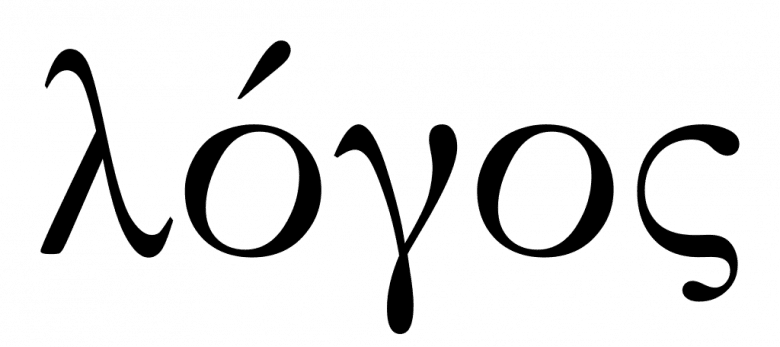Faith and reason need each other. Faith without reason can degenerate into superstition and fanaticism. Reason without faith can degenerate into tyranny and meaninglessness.
So says Samuel Gregg in his book Reason, Faith, and the Struggle for Western Civilization. He argues that Christianity solved this problem in a unique way, one that would prove to be foundational to Western civilization, making possible its greatest achievements. Christianity takes the Logos of the philosophers–which refers to the rational order built into existence and is the root of the word “logic”–and identifies it with God Himself, incarnate in Jesus Christ.
In the beginning was the Word [Logos], and the Word [Logos] was with God, and the Word [Logos] was God. He was in the beginning with God. All things were made through him, and without him was not any thing made that was made. In him was life, and the life was the light of men. The light shines in the darkness, and the darkness has not overcome it. . . .
And the Word [Logos] became flesh and dwelt among us, and we have seen his glory, glory as of the only Son from the Father, full of grace and truth. (John 1:1-5, 14)
Thus, says Gregg, faith and reason–revelation and logic, the spiritual and the material, the divine and the human–are reconciled and put into relationship with each other. Which, in turn, made possible the West’s legacy of freedom, science, and enlightenment.
Rachel Lu explains further in her review of Gregg’s book in Law & Liberty entitled Reuniting Faith and Reason:
People of all faiths (and none) are losing sight of the essential connection between them [faith and reason], and the consequences of that uncoupling may be very grave indeed.
To help his readers grasp this point, Gregg goes back to the beginning, explaining how remarkable it is that the Judeo-Christian tradition was able to identify the God of Israel with the logos of the philosophers. Far from being evident, this identification is in many ways deeply counter-intuitive. Across the ages, the religiously devout have always recognized that humans, in their pursuit of natural excellence, may find themselves competing with the divine, pridefully grasping at power that is not rightfully theirs, in an effort to further their own ends. While the prophets fret about this problem, the philosophers tend to have the opposite concern. In their anxiousness to explore human potential, they are wary of the possibility that a jealous God or gods may punish human excellence, as part of a bid for absolute sovereignty. Ancient, mythical deities (like Zeus) were sometimes inclined to punish over-ambitious underlings whose excellence threatened their own divine rule. The obvious way to avoid this danger is by jettisoning God entirely, and declaring man an end unto himself. If God is dead, men will be free to develop their rational potential to the highest possible degree.
Insisting that Israel’s God simply is the logos, Christians argued that this conflict is illusory. The God who made us is Truth itself, and our capacity to reason is what most clearly marks us as bearers of His divine image. Faith can help us to unfold our natural abilities. Meanwhile, developing the gift of reason is a fitting way to honor the Creator who bestowed it.
On paper, this may look like a mere philosopher’s trick. Gregg shows that it is not. This idea has tremendous consequences; socially and politically it is transformative. Gregg illustrates this by discussing the consequences both of faithless reason, and of ungrounded faith. Without reason, he explains, faith descends into fundamentalism. The slavish missionaries of an opaque deity may end up committing atrocities “in God’s name,” as part of a desperate effort to force the created world into their preferred narrative arc. This is potentially terrifying, but faithless reason can be just as destructive. Without its natural partner, reason lacks the transcendent horizon that allows human beings to unfold their real potential. It turns back on itself, becoming tyrannical in its own way as it fruitlessly seeks fulfillment on a natural plane.
Misreading Our Opponents
It’s critically important to understand both of these hazards. It can be hard for us to remember that, since we live in an age when the religiously devout are regularly skirmishing with the militantly secular. We want to choose sides, and countless books, articles, and popular media creations have indulged this impulse, explaining how the evils of modern life can be traced back either to fundamentalism or to a warped secularism that has made itself into a godless faith.
Deftly walking this fault line, Gregg keeps faith with his subject by offering robust analysis of both categories of error.
This is an intriguing analysis. But does it overstate the theological role of reason in Christianity at the expense of faith?
Gregg begins with a discussion of Pope Benedict XVI’s lecture at Regensburg, Germany, “Faith, Reason, and the University,” in which he stirred up controversy by contrasting Christianity’s integration of reason with Islam’s repudiation of reason, as manifested in jihadist terrorism. The scholastic theology of Roman Catholicism, grounded as it is in Aristotelian philosophy, does indeed integrate faith and reason, but how about the Reformation critics of that theology who insisted instead on “faith alone”?
I think Luther does affirm both faith and reason, in Gregg’s sense, but he also explains how they should be related to each other. Our citizenship in God’s eternal kingdom comes by faith in Christ alone. But in our citizenship in God’s temporal kingdom we are to employ reason. Thus, Luther calls reason “the devil’s whore” when human beings make it their spiritual authority at the expense of God’s Word (that is, God’s Logos, as opposed to man’s logic). And yet, in his explanation of Creation in the Small Catechism, Luther describes reason as a gift of God, who “has given me. . . my reason and all my senses.”
Problems come, according to Luther, when God’s Two Kingdoms are confused and usurp each other. Faith and reason each has its place. Faith has to do with the spiritual realm, and reason has to do with the earthly realm. Luther contended, in effect, that medieval Catholicism confused those realms: It made reason the authority in the spiritual realm (enshrining Aristotle’s abstract deity over against the God of Scripture) and made faith the authority in the earthly realm (resulting in the superstitions of the relic trade and the fanaticism of the crusades). In particular, Luther opposed theocracies, both the Pope’s claim to exercise political authority over temporal rulers and, on the Protestant side, the “enthusiasts'” various attempts to set up the Kingdom of God on earth as in the Peasants’ Rebellion.
We cannot reason our way to faith, which is a gift of the Holy Spirit, created in us by Word [the Logos] and the Sacraments. The same section of the Small Catechism, the explanation of the Apostle’s Creed, which says that reason is one of God’s gifts of creation, says in the article on Sanctification and the work of the Holy Spirit: “I believe that I cannot by my own reason or strength believe in Jesus Christ, my Lord, or come to Him; but the Holy Spirit has called me by the Gospel, enlightened me with His gifts, sanctified and kept me in the true faith.” Whereupon God sends us back into the world, where we live out our faith in our multiple vocations in the family, the workplace, the church, and the society. In those vocations, we love and service to our neighbors, among other ways, by exercising our reason.
For Luther, faith and reason are not integrated, as such. That is a formula for confusing them, leading to some of the problems Gregg documents. Rather, faith and reason complement each other, with each in its place, carrying out its God-given function.
Image via Wikimedia Commons














